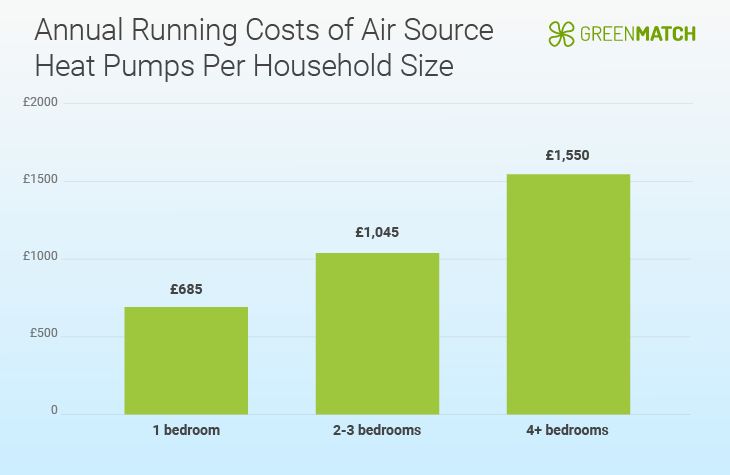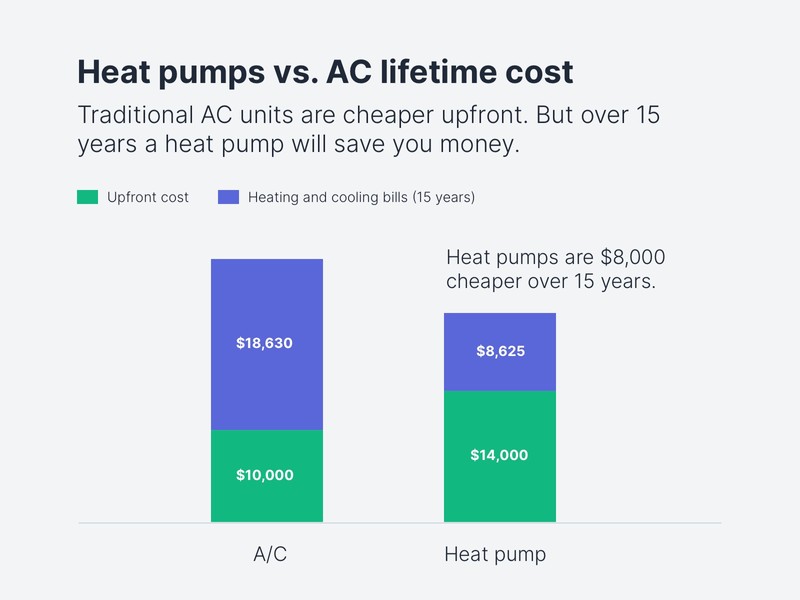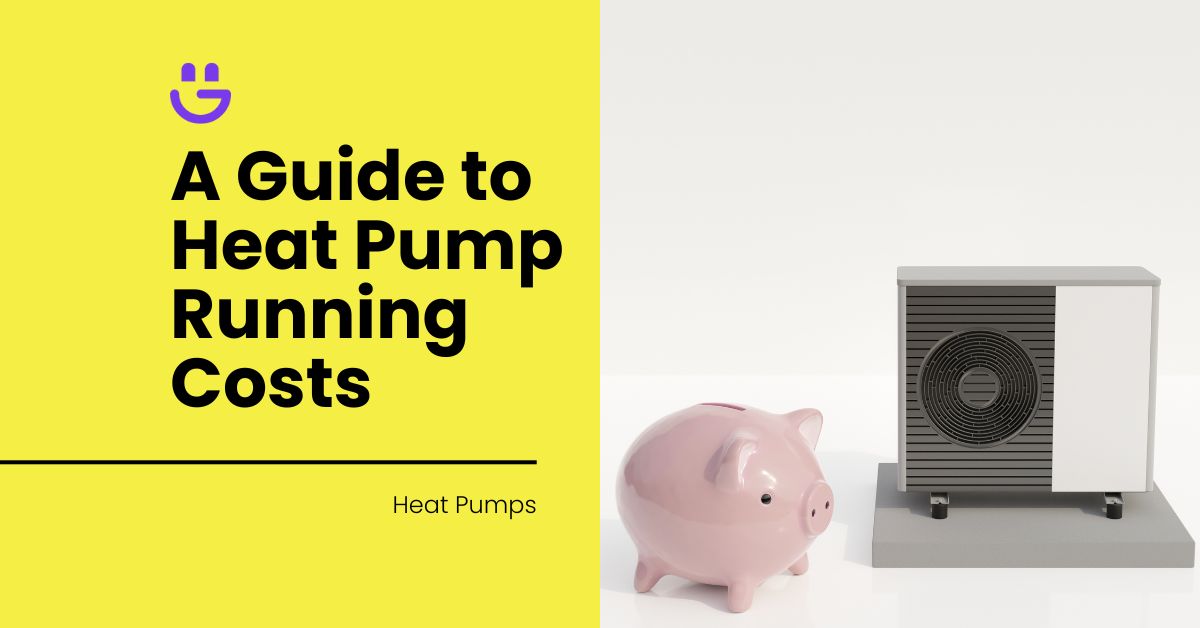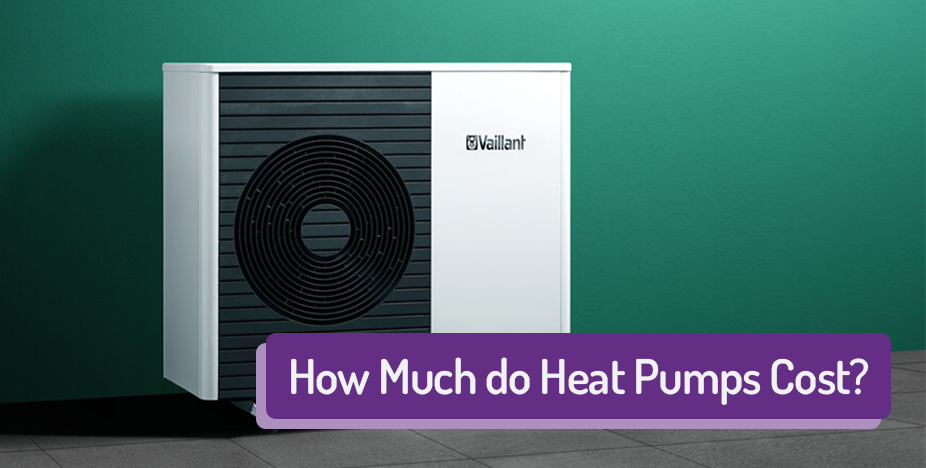How Much Does It Cost To Run A Heat Pump

Understanding Heat Pump Operating Costs: A Comprehensive Guide
Heat pumps have become increasingly popular as energy-efficient alternatives to traditional furnaces and air conditioners. But how much does it actually cost to run a heat pump? The answer isn't a simple number; it depends on a variety of factors, from the type of heat pump you have to the climate you live in.
Key Factors Influencing Heat Pump Running Costs
Several elements play a role in determining the operating cost of your heat pump. Let's break them down:
- Heat Pump Type: Different types of heat pumps have varying efficiency levels.
- Climate: Colder climates generally lead to higher heating costs.
- Energy Rates: The price you pay per kilowatt-hour (kWh) significantly impacts your bill.
- Home Insulation: Poorly insulated homes require more energy to heat and cool.
- Heat Pump Efficiency (HSPF & SEER): Higher ratings mean better efficiency.
- Usage Patterns: How often and intensely you use your heat pump affects costs.
- Maintenance: Regular maintenance ensures optimal performance.
Types of Heat Pumps and Their Efficiency
The primary types of heat pumps are air-source, ground-source (geothermal), and ductless mini-split. Each has unique characteristics that affect running costs.
Air-Source Heat Pumps
Air-source heat pumps (ASHPs) are the most common type. They transfer heat between your home and the outside air. Their efficiency is measured by two ratings:
- SEER (Seasonal Energy Efficiency Ratio): Measures cooling efficiency. Higher SEER ratings (typically 14-22+) indicate better cooling performance.
- HSPF (Heating Seasonal Performance Factor): Measures heating efficiency. A higher HSPF rating (typically 8-10+) means more efficient heating.
Example: An ASHP with a SEER of 16 and an HSPF of 9 will generally be more efficient than a model with a SEER of 14 and an HSPF of 8. Newer models even boast variable speed compressors for even higher efficiency.
Ground-Source (Geothermal) Heat Pumps
Ground-source heat pumps (GSHPs), also known as geothermal heat pumps, use the stable temperature of the earth to heat and cool your home. They are more expensive to install but offer significantly higher efficiency than ASHPs.
GSHP efficiency is measured by COP (Coefficient of Performance) for heating and EER (Energy Efficiency Ratio) for cooling. Look for higher COP and EER values for better performance. Typical COP values range from 3 to 5, meaning for every unit of electricity used, the system provides 3 to 5 units of heat.
Real-World Benefit: Geothermal systems are less affected by extreme outdoor temperatures, leading to more consistent and lower operating costs, especially in regions with harsh winters or hot summers.
Ductless Mini-Split Heat Pumps
Ductless mini-split heat pumps are individual units that can heat or cool specific zones in your home. They are highly efficient and offer precise temperature control. They also have SEER and HSPF ratings, similar to ASHPs.
Benefit: Zoning allows you to only heat or cool the rooms you're using, saving energy compared to a central system that heats or cools the entire house.
Calculating Heat Pump Running Costs: A Step-by-Step Guide
While precise costs vary, you can estimate your heat pump's operating expenses using this formula:
- Determine Your Heat Pump's Wattage: This information is usually found on the unit's nameplate. If it's listed in amps, multiply by the voltage (typically 240V) to get wattage.
- Convert Watts to Kilowatts (kW): Divide the wattage by 1000.
- Estimate Run Time: Estimate how many hours per day your heat pump operates. This will vary based on climate and insulation.
- Multiply to Get Daily kWh Usage: Multiply the kW by the run time (hours).
- Multiply by Your Electricity Rate: Multiply the daily kWh usage by your electricity rate (cost per kWh). This will give you the daily operating cost.
- Multiply by the Number of Days in the Month: This estimates the monthly operating cost.
Formula: (Wattage / 1000) x Run Time (Hours) x Electricity Rate ($/kWh) = Daily Operating Cost
Example: Let's say you have a 3kW heat pump, it runs for 8 hours a day, and your electricity rate is $0.15 per kWh.
(3 kW) x (8 hours) x ($0.15/kWh) = $3.60 per day
$3.60 per day x 30 days = $108 per month
Important Note: This is an estimation. Actual costs can fluctuate based on weather patterns and your home's specific characteristics.
Regional Cost Variations
Energy prices vary widely across the United States. For example, residents of states in the Northeast generally pay higher electricity rates than those in the Southeast. Climate also plays a significant role. Homes in colder climates will naturally use more energy for heating, leading to higher costs. A heat pump in Florida will likely cost less to operate annually than the same unit in Minnesota, simply due to the difference in heating demand.
Comparing Heat Pump Costs to Other Heating Systems
Compared to traditional heating systems like furnaces, heat pumps offer several advantages. Electric resistance heating is generally the most expensive, followed by propane and oil. Natural gas is often the cheapest, but heat pumps, especially geothermal systems, can rival natural gas in overall cost-effectiveness due to their high efficiency.
A key consideration is the coefficient of performance (COP). As mentioned earlier, a geothermal heat pump might have a COP of 4, meaning it delivers four units of heat for every unit of electricity consumed. A traditional electric resistance heater, on the other hand, has a COP of 1. This highlights the significant energy savings potential of heat pumps.
Tips for Reducing Heat Pump Running Costs
You can take several steps to minimize your heat pump's operating expenses:
- Improve Insulation: Properly insulate your walls, attic, and floors to reduce heat loss.
- Seal Air Leaks: Seal any gaps or cracks around windows, doors, and pipes.
- Use a Programmable Thermostat: Set your thermostat to lower temperatures when you're away or asleep.
- Regular Maintenance: Schedule regular maintenance checks to ensure your heat pump is running efficiently. Clean or replace air filters regularly.
- Consider a Smart Thermostat: Learn your patterns and adjust automatically for maximum savings.
- Upgrade to a More Efficient Model: If your heat pump is old, consider upgrading to a newer, more efficient model with a higher SEER and HSPF rating.
- Optimize Thermostat Settings: Avoid setting the thermostat too high or too low. A moderate temperature setting can significantly reduce energy consumption.
- Consider Zoning: If you have a ductless mini-split system, use zoning to heat or cool only the rooms you're using.
Maintenance and Lifespan Considerations
Regular maintenance is crucial for ensuring your heat pump operates efficiently and lasts longer. A well-maintained heat pump can last 15-20 years, while a neglected unit may only last 10-12 years. Maintenance tasks include:
- Cleaning or Replacing Air Filters: Dirty filters restrict airflow, reducing efficiency.
- Cleaning the Outdoor Unit: Remove debris from around the outdoor unit.
- Checking Refrigerant Levels: Low refrigerant levels can significantly impact performance. This task should be performed by a qualified HVAC technician.
- Inspecting and Cleaning Coils: Clean coils help improve heat transfer.
- Annual Professional Inspection: Have a qualified HVAC technician inspect your heat pump annually.
Conclusion
Understanding the factors that influence heat pump running costs is essential for homeowners, technicians, and facility managers alike. By considering the type of heat pump, climate, energy rates, insulation levels, and efficiency ratings, you can make informed decisions about HVAC systems and implement strategies to minimize energy consumption and save money. Investing in a high-efficiency heat pump and properly maintaining it can provide long-term cost savings and a comfortable indoor environment.










